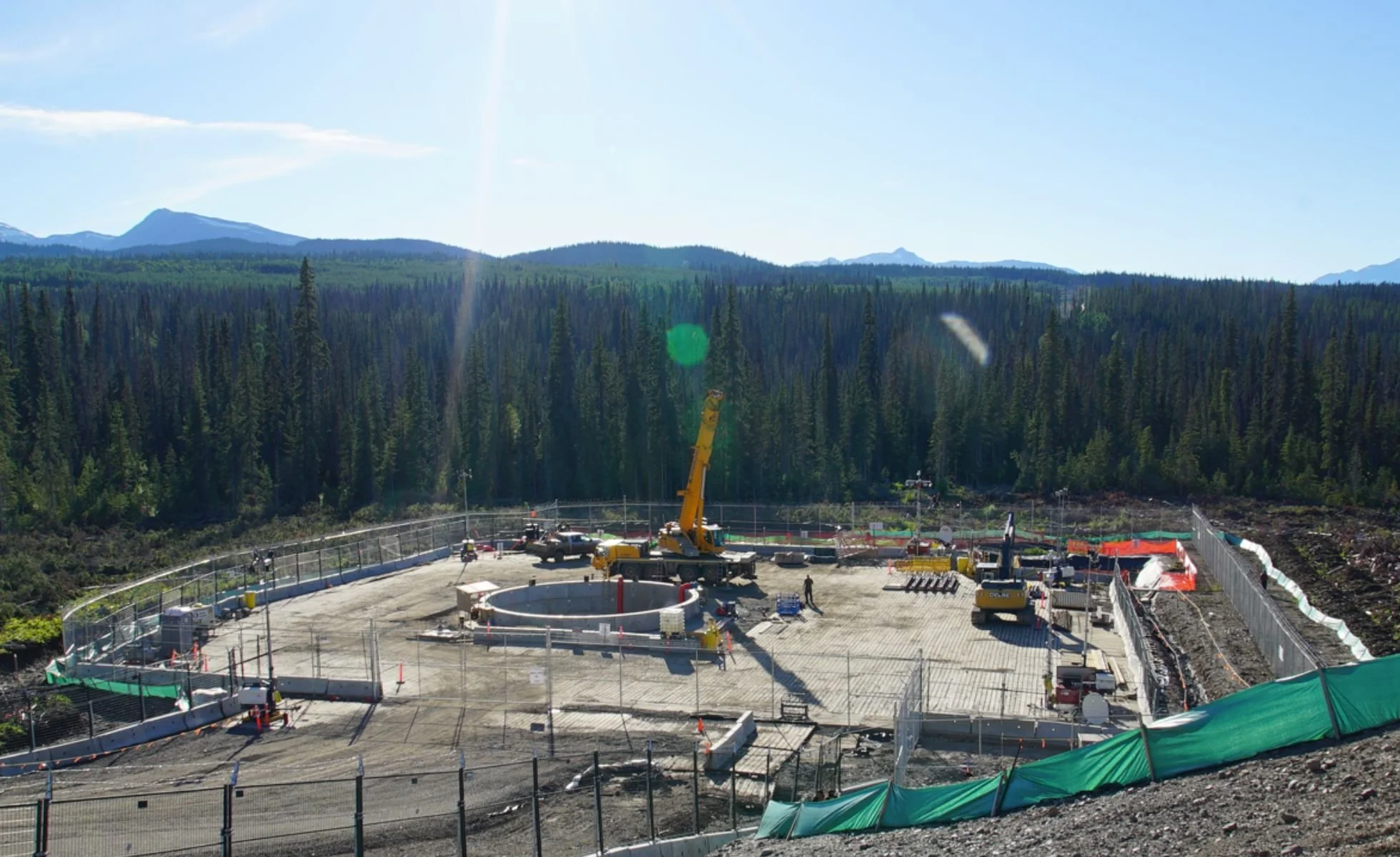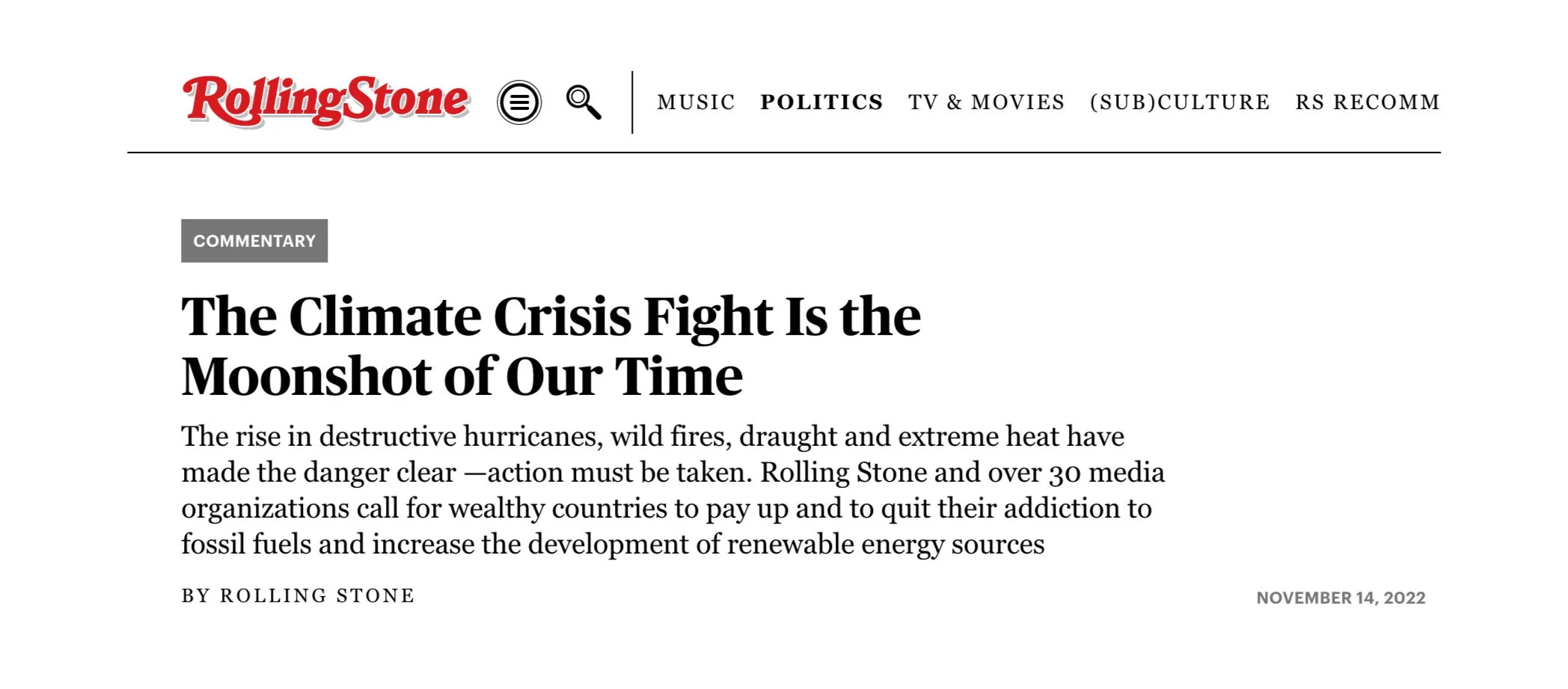Climate Emergency Unit News and Blog
Get our blogs sent straight to your inbox by signing up for our newsletter.
Poll results show a youth climate corps would be a political winner, and a path to a real mobilization
By Seth Klein
Eager to see what Canadian public opinion makes of a climate corps, the CEU commissioned a poll from Abacus Data. The results are now in, and they are very good news! The headline finding: A majority of Canadians – across the country and political lines – support the idea of creating a Youth Climate Corps (YCC). The results are especially strong among those aged 18 to 35 (the cohort for whom the program is designed). The most heartening results came from a survey question that asked those 35 and under, “If a program like this existed, how likely are you to consider enrolling in a Youth Climate Corps for two years?” In short, hundreds of thousands of young people are ready to serve as we confront the climate emergency. Our governments should sign these folks up as quickly as possible
Majority of Canadians support a Youth Climate Corps, new polling reveals
Toronto & Vancouver— A majority of Canadians support the idea of creating a Youth Climate Corps (YCC). According to a new national survey conducted by Abacus Data, after being given a short description of the program, 55% of adult Canadians support it, with a further 23% who can accept it. Only 12% oppose the idea.
How to win electoral support from young people? How about instituting a Youth Climate Corps!
by Seth Klein
Last month, the campaign for a Youth Climate Corps took a big leap forward when the Biden administration launched the American Climate Corps — a new jobs program that will see thousands of young people get training and employment in climate-related work, and a huge win for the youth-led Sunrise Moment in the US. Launching the American Climate Corps should be seen as a renewed attempt by Biden to make nice with the youth voting bloc upon whom his re-election may well hinge. Speaking of which: Memo to Prime Minister Justin Trudeau! The polls have you trailing badly among Gen Z and Millennial voters. Maybe it’s time to offer something exciting and hopeful to these folks. Sir, may I present the Youth Climate Corps.
Reflections on a burning summer and the precarious terrain between hope and despair: In the battle for our lives, is it possible we are winning?
by Seth Klein
Victories often don’t occur in a clear-cut timeline, nor can they always be pinpointed to a specific event. When we look back at this time, maybe — just maybe — the spring and summer of 2023 will be remembered as a pivot period. This summer was also the first in which almost all Canadians experienced the emergency firsthand. Perhaps this collective experience — in which we all stared the crisis in the face and tasted the disruption to come — will signal a shift in the zeitgeist we’ve long awaited.
Canada Needs a Youth Climate Corps, and More
By Emiko Newman and Erin Blondeau
Over 1,000 wildfires are burning across Canada. Families are fleeing their homes, haunted by the very real possibility that they may never be able to return.
This dystopian scene has become far too common. In June 2021, Lytton, B.C. experienced the highest temperature ever recorded in Canada: 49.6 C. A devastating wildfire then reduced the town to ashes. Two years later, the rebuilding process has hardly begun, yet residents of the Lytton First Nation are once again under evacuation alert due to wildfires.
Opinion: Youth voters ignored in Alberta election and it proved costly for the NDP
By Juan Vargas Alba
It may be hard to believe, but half of Gen Z (1997-2012) is now eligible to vote; you just wouldn’t know it if you followed last week’s provincial election. With voter turnout at a disappointing 59.5 per cent, it’s likely that youth voter turnout also followed its downward trend. Young voters — many of whom have never voted but care deeply about political issues and who have experienced their most formative years during a pandemic — could have made stark differences in key ridings.
Long-awaited Sustainable Jobs Act a snoozer
By Seth Klein
The federal government has tabled its long-awaited Sustainable Jobs Act (formerly to be known as Just Transition Act).
The full name of the bill is “An Act respecting accountability, transparency and engagement to support the creation of sustainable jobs for workers and economic growth in a net-zero economy.” And yes, the bill really is as boring as the title suggests.
Our Vision for a Youth Climate Corps: a transformative climate and labour solution
Climate mobilization in Canada has yet to feel like a grand societal undertaking, despite the risks we face and the climate disruption we’ve already endured — like heat domes, wildfires, and atmospheric rivers.
The Youth Climate Corps is an invitation to the country’s youth to mobilize to confront our civilizational challenge and step into a future with meaning and purpose.
Opinion: Message to Ottawa from a young Albertan: Clock is ticking on Canada entering the race to net zero
By Juan Vargas Alba
With President Biden’s upcoming visit to Ottawa, I wonder if Prime Minister Trudeau might be a bit embarrassed. After all, the historic Inflation Reduction Act in the U.S. includes “unprecedented investments to tackle climate change.” Meanwhile, the European Union recently introduced a proposal to encourage clean energy and climate investments. Canada hasn’t even entered this race to the top for net zero.
An invitation to serve: the transformative potential of a Youth Climate Corps
by Seth Klein
Most young people know — the climate crisis is coming for them. One way or another, on their terms or not, it's going to enlist them. It won't ask their permission. Best to take pre-emptive action on one’s own terms. A Youth Climate Corps (YCC) would represent an invitation to Canada’s youth to mobilize to confront today’s gravest threat: the climate emergency. It could be a new flagship public program and, funded at sufficient scale, would send an electrifying signal. It would indicate our governments are indeed entering genuine emergency mode and would communicate to young people that they are being called to join in a grand societal transformation.
Crisis, what crisis? We need a climate emergency information agency
by Seth Klein
Emergency responses need to look and sound and feel like emergency responses. Emergencies require that leaders tell the truth about the severity of the crisis and what is required to combat it — frequently, consistently and coherently. Yet, nothing about the climate communications we currently hear and see comes close to approximating such an invitation. The current official communications (or lack thereof) is producing a form of cognitive dissonance — is this an emergency or not? That confusion needs to end. We need a new, well-resourced climate communications agency — a Climate Emergency Information Board.
The unbearable cost of fossil fuel lobbying
By Anjali Appadurai
The new year opened with a significant step forward for Canadian climate policy as the Glasgow Statement takes effect. Canada signed onto the policy, which promises to end international public support for the oil and gas industry, with an accompanying pledge to tackle the much higher domestic support for the industry by mid-2023.
Sikh practice sets a path for community-led climate action
By Anjali Appadurai
It’s the season of giving, of family and connection and generosity. It’s also the aftermath of yet another lukewarm UN climate COP and another year of inadequate climate policy — and it’s a strange mix of these themes that I’m reflecting on as I consider what climate action must look like in the year to come.
B.C.'s new Premier David Eby hits the ground running, but what early climate signals can be found in his cabinet and mandate letters?
As Premier Eby settles into his new role, some important changes appear to be afoot, reflected in both the language being used and the people being appointed to key roles. Last week, this was most apparent with the unveiling of Eby’s new cabinet and in the mandate letters given to new ministers. This piece digs into the choices and mandate letters of cabinet members Josie Osborne, Bowinn Ma, Niki Sharma and Brenda Bailey.
Opinion: Premier Eby must choose: climate commitments or fossil fuels
By Stewart Phillip, Peter McCartney, Seth Klein, Tracey Saxby, Alexandra Woodsworth, Kiki Wood, John T. Young, Jens Wieting
Opinion: To avoid the worst impacts of climate change, we must stop building coal, oil and gas projects.
Seth’s testimony to House of Commons Standing Committee on Science and Research on “Moonshot Programs”
On November 21, 2002, CEU team lead Seth Klein was invited to be a witness before the House of Commons Standing Committee on Science and Research, as part of their study of “International Moonshot Programs.” Here’s his testimony…
What way forward for the BC NDP: Will new premier set a new climate course?
By Seth Klein
I had a rather unique, and sometimes stressful, vantage point on the BC NDP leadership contest. Both Dave Eby and Anjali Appadurai are my longtime friends. I’ve known Dave since his early days with Pivot Legal in the Downtown Eastside. Our families have spent holiday time together and have shared in celebrating major life events. I’ve known and worked with Anjali for over 10 years, and we are currently colleagues at the Climate Emergency Unit. I am very fond of them both and want to share a little about what I admire about each of them. And I here I offer some thoughts about what should happen going forward
DIY time — no one is coming to save us from climate catastrophe
By Emma Norton
Last Friday, Sept. 23rd, was the fourth anniversary of the first global climate strike. That same day that hurricane Fiona, “the most intense storm on record,” according to Accuweather, made landfall in Nova Scotia, cancelling the climate strike so that everyone could batten down the hatches.
Canada needs a new federal Climate Emergency Just Transition Transfer: Seth Klein’s testimony to the House of Commons Standing Committee on Finance
On Sept 21, Seth was invited to testify before the House of Commons Standing Committee on Finance as part of the committee’s deliberations on fiscal federalism. In a rare opportunity, Seth had a full hour with the committee to share our idea for a new federal transfer and then had a spirited Q&A session with the parliamentarians. Here’s an edited version of what he shared.
Community connections as a form of climate justice
By Emma Norton
Want to get people to your event? Give them free hot dogs!
Last week, we held a community BBQ for less than $500 and had over 80 people attend with less than a week’s notice. I hosted the event representing the Climate Emergency Unit, and my friends and colleagues represented each of their respective organizations: Joanna Bull with Ecology Action Centre, Peter Perry with NS General Employees Union, and Melissa Marr with Wonder’neath Art Society.




















